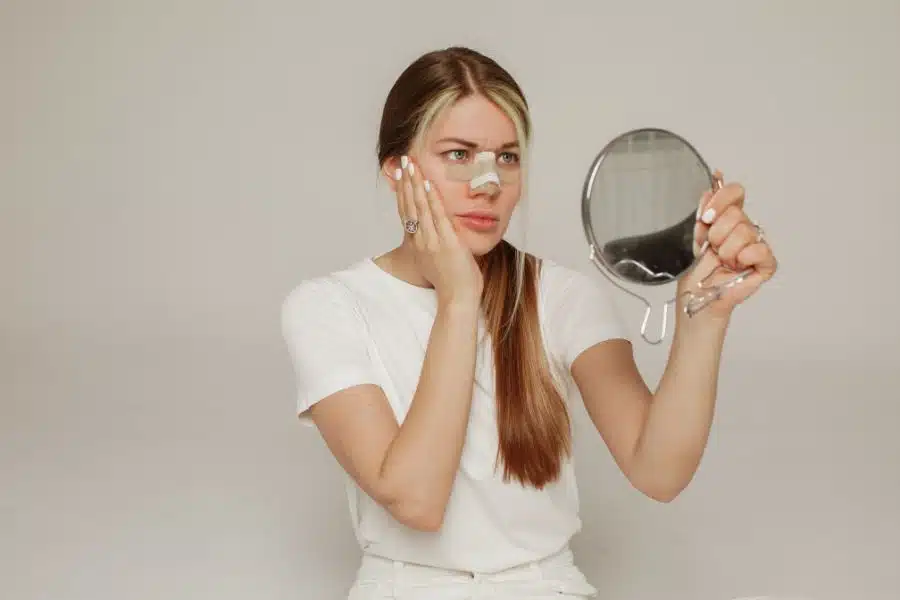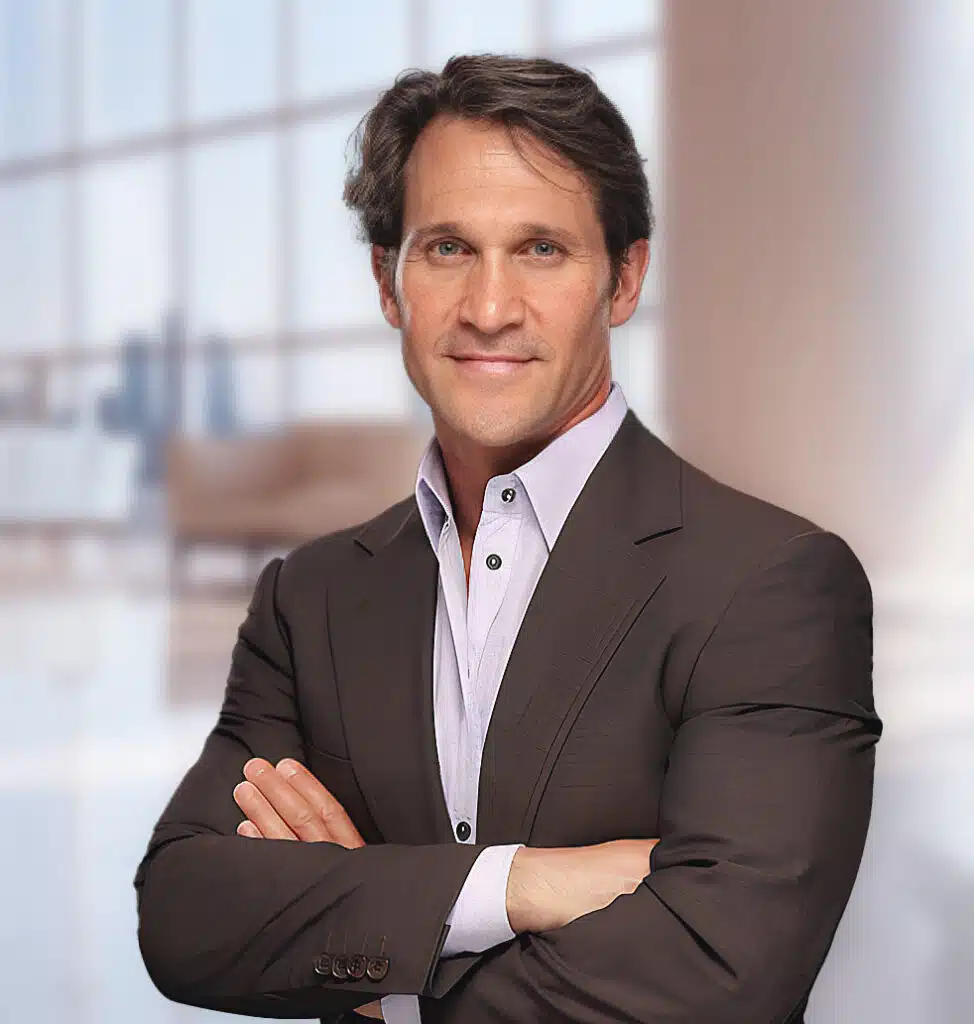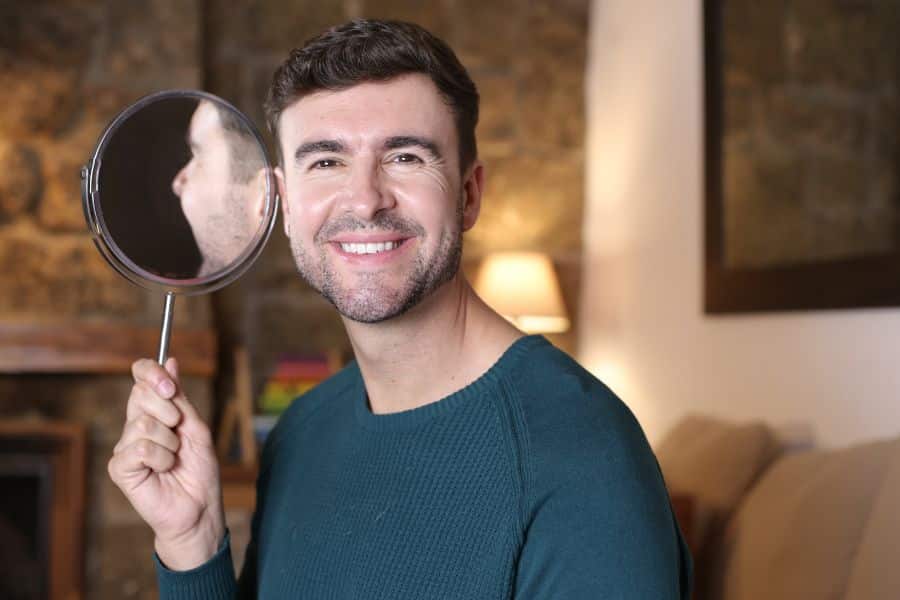
Depression after Rhinoplasty
Feeling uncertain or depressed after rhinoplasty is something some patients experience. Temporary emotional changes can happen, especially while dealing with swelling, discomfort, or adjusting to a new look. These feelings are normal and often improve as recovery progresses.
Dr. Andrew Frankel, a board-certified facial plastic surgeon, has extensive knowledge of both the physical and emotional effects of rhinoplasty. His experience helps patients understand what to expect and feel supported throughout the healing process, making recovery smoother and less stressful.
Struggling Emotionally After Rhinoplasty?
- Feeling sad or regretful after rhinoplasty is common and usually temporary.
- Swelling, discomfort, and adjusting to a new look can affect emotions after rhinoplasty.
- Smoking before or after rhinoplasty can slow healing and impact results.
- Talking to a rhinoplasty expert can help address concerns about emotional recovery.
- A strong support system and patience are key to a smooth rhinoplasty recovery.
What is Depression Post-Surgery?
It’s normal to feel a kind of emotional rush just before having a rhinoplasty Beverly Hills or any plastic surgery. The result of months of planning, consultation, waiting, and finally undergoing the procedure can feel like a long climb up the hill of a roller coaster at times.
Once the procedure is over and the recovery period kicks in, however, some people may become mildly depressed. Whether it’s the after-effect of the anesthesia, the pain, swelling, or bruising related to rhinoplasty and home confinement, the emotional high is gone, and it’s back to reality.
It’s also normal to fall into a kind of post-operative funk where the feelings of anticipation and exhilaration before nose surgery are replaced by second-guessing and thoughts of “did I do the right thing having the procedure done?”

Why does it happen?
Some people may become depressed by the pain and discomfort associated with recovery. Others might feel down at the often distressing sight of recuperative bruising and swelling, which is expected after a nose job.
It’s also disconcerting having to stay indoors for days at a time while the body recovers or having to readjust and refine one’s normal sleep positions to ensure optimum healing. Then there are those patients who are more prone to mild depression and anxiety, and having cosmetic surgery may only exacerbate their feelings.
Optimize Your Rhinoplasty Success
Reach out today to discuss how managing smoking can enhance your nose surgery results and ensure a smooth recovery.

How to Know If I Have Post-Surgery Depression
Here are some common indicators of post-surgery depression:
- Anxious thoughts or feelings of worry and fear that won’t go away.
- Having overwhelming feelings during the recovery process.
- A lack of interest in things you used to enjoy.
- Feeling overwhelmed by the changes in your nose after surgery.
- Difficulty sleeping or an increase in nightmares.

How to Recover from Depression after a Nose Job
Experiencing a range of emotions that include anxiety, fear, and depression in the days and weeks after nose surgery is not unusual. Here are some tips to help with recovery.
Regular Check-ins with a Mental Health Professional
Remember that depression is a real medical condition and should be properly treated. Regular check-ins with a mental health professional during the healing process and after are recommended to work through any feelings of sadness or anxiety. They can offer guidance on how to manage the condition and return to normal levels of functioning.
Self-Care Strategies
Self-care is essential when recovering from depression after a cosmetic procedure like rhinoplasty. Getting a recovery plan with adequate rest and nutrition, doing activities that make you feel relaxed, as well as exercising promotes positive moods and energy levels. Furthermore, talking to your family or friends about your feelings can provide emotional support.
Alternative Therapies
Post-rhinoplasty depression can be managed through mindfulness-based activities such as meditation and yoga, acupuncture, massage, and cognitive behavioral therapy (CBT) to decrease stress levels and improve well-being.
Emotional Support
Having a strong support system is essential for managing depression during the recovery process after a nose job. It is important to reach out to family and friends, or even online support groups, for assistance and encouragement. Working with a counselor or therapist can also be beneficial in guiding how to best cope with feelings of depression and anxiety. Additionally, participating in support groups specifically for post-rhinoplasty patients can be a great way to connect with others who understand the unique experience.
Identifying the signs and symptoms of depression after a nose job is important. Look out for any changes in mood or behavior and physical signs such as difficulty sleeping or more nightmares. Seeking professional help from a mental health provider is essential to learn how to cope with depression and anxiety during recovery. Self-care strategies, alternative therapies, and emotional support can also be helpful in dealing with post-operation depression.

Reduce the Risk of Having Depression After Rhinoplasty
There are some steps that you can take before and after the procedure to reduce the risk of depression:
Set realistic expectations
Before you decide to have a Beverly Hills nose job, make sure that you understand what the results will be. It is important to have realistic expectations so that you are not disappointed in the end result.
It is also important to research the best board-certified plastic surgeon for your procedure. Ask to see photos of previous procedures they have done and read reviews from other patients. Make sure that you are comfortable with their credentials and experience before making a decision.
Follow all post-operation instructions
Following all post-operation instructions will help to ensure a quick recovery and reduce the risk of any complications that could lead to depression.
Goals for recovery should include finding ways to manage any negative thoughts and emotions that may arise after Beverly Hills rhinoplasty.
Setting realistic goals can help to boost your self-confidence and focus on the positive aspects of recovery.
Ask for support
If needed, do not hesitate to ask for emotional or practical support from friends and family members during the recovery period.
Talk to Your Surgeon
It’s good to know that in most cases, the results of rhinoplasty in Beverly Hills are positive, and all that emotional build-up did not go to waste. Most cosmetic surgery patients feel satisfied when the bandages come off, and the results are just what they were looking for and the reason why they chose to have the procedure done in the first place.
Your surgeon can provide advice and strategies to reduce the stress of surgery, such as deep breathing exercises or other relaxation techniques. A cosmetic surgeon can also assist in increasing self-confidence by explaining potential results and addressing any questions or worries you may have. With sufficient support, depression may be prevented, leading to greater satisfaction with the outcomes of rhinoplasty.
Doctors are aware of the post-operative blues, which is why you should always communicate your fears and expectations and even your emotional makeup to your qualified plastic surgeon during the initial consultation. A revision rhinoplasty will be performed just in case something goes wrong. It’s the best way to keep that emotional roller coaster on track.
Consult with a Rhinoplasty Expert!
If you’re looking for a board-certified facial plastic surgeon to help reduce the risk of post-surgical depression and boost your confidence, look no further than Dr. Frankel. With years of experience in rhinoplasty procedures, Dr. Frankel can provide the expert advice and care you need during your recovery process. Contact us to learn more about how he can help you achieve the results you desire!

